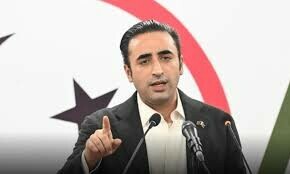As the oft-estranged neighbours continue to grapple with a whole host of complex challenges, including unrelenting militancy and extremism, the Afghan National Army chief’s call for closer Islamabad-Kabul cooperation in the fight against terrorism is worth heeding.
Gen Sher Mohammad Karimi, speaking at the Pakistan Military Academy, Kakul, made a strong pitch for concerted efforts by Pakistan and Afghanistan to counter the devastating effects of the four-decade conflict. Moving in tandem against extremists is a workable option to put things on the right track.
Thanks to the US-sponsored jihad against the Soviet forces, the region has become a familiar stomping ground for insurgents and obscurantists of all hues. Afghan, Pakistani, Chechen, Uzbek and Arab guerillas have literally held the two nations hostage.
Because of the absence of strong political will to promote national reconciliation and vanquish non-state actors, we have been witness to frequent civilian massacres and economic backwardness. Counterintuitive moves and half-steps, as we have seen over the past decade, have been a sure recipe for further chaos.
Read: Terrorists are common enemies of Pakistan, Afghanistan: Afghan army chief
Myopic state policies, including mistrust, blame game and weird perceptions of strategic depth, have made matters worse. Little surprise then that the shared objective of peace remains elusive. The goal is achievable, nonetheless. What is direly needed is sincerity of intent.
Pakistan’s support is needed for peace in Afghanistan.
If Pakistan and Afghanistan join hands against terrorists and focus on sustained good-neighbourly relations, the region can be assured of a stable security environment — the sine qua non for meaningful confidence-building measures and economic prosperity.
Gen Karimi’s suggestion came hours after President Ashraf Ghani accused the Islamic State — a dreaded outfit apparently involving many disgruntled Taliban leaders — of conducting a deadly suicide bombing in the eastern city of Jalalabad near the Pakistan border.
Apparently, the Iraq-style attack that left over 30 civilians dead and more than 100 injured represents a major escalation of the group’s sinister activities in the country and a new challenge to the Afghan security forces, who are still rough around the edges.
Sooner or later, the IS will try to make its presence felt in other countries as well. Before the group expands its foothold, Pakistan is required to take a pragmatic view of the changing nature of the insurgency next door by helping the neighbour keep a lid on the destabilising operations of the terrorist organisation.
While the Afghan army chief’s demand for a combined counterterrorism approach does stand to reason, one feels prompted to remind him of the urgent need to deny sanctuary in Afghanistan to hundreds of foreign fighters fleeing the military offensive in Pakistan’s tribal badlands.
The militants, who manage to sneak into Afghanistan, swell the ranks of Taliban factions that are flexing their muscles for the so-called spring fighting season. Over the weekend, they overran a number of army posts and beheaded several soldiers in northeastern Badakhshan province.
On the political front, the cross-border infiltration tends to undermine fence-mending attempts. Some irate Afghan legislators, ex-president Hamid Karzai and power brokers have already questioned Ghani’s outreach to Pakistan to facilitate his administration’s dialogue with the Afghan Taliban.
Policymakers in Islamabad will be well advised to neither downplay nor overestimate the IS that rose from the sands of Iraq and Syria. Since the group poses a clear and present danger, any laxity or miscalculation could spell trouble for Afghanistan and Pakistan.
The outfit is in the thick of a recruiting drive on the Afghan side of the Durand Line. Given its robust millenarian appeal and use of extreme brutality, the IS could eventually give its best shot to making common cause with Pakistani extremists. Dangerous nostrums, such as good and bad insurgents, will only strengthen the militants and exacerbate security woes for the neighbours.
Afghanistan has stopped slamming Pakistan as the worst neighbour in hell and a stumbling block to peace. In a marked policy shift, it also acknowledges Gen Raheel Sharif’s role in convincing the Afghan Taliban to sit across the negotiating table. Ghani is acutely aware that durable peace in Afghanistan is not possible without support from Pakistan.
Now that the foreign military presence has significantly shrunk, China, Iran and Russia have also signalled a willingness to lend their weight to peace efforts. A regional power in its own right, India has evinced a keen interest in stabilising Afghanistan. The involvement of these countries in the reconciliation process may guarantee an end to the conflict.
After more than a decade of bilateral acrimony, Kabul and Islamabad are finally on the same page with regard to the fight against terrorism. They agree terrorists neither require passports nor recognise nationalities. But nation states, on the other hand, are supposed to demonstrate sufficient wisdom not to sink, but to swim, together.
The writer is a Kabul-based Pakistani journalist.
Published in Dawn, April 21st, 2015
On a mobile phone? Get the Dawn Mobile App: Apple Store | Google Play












































